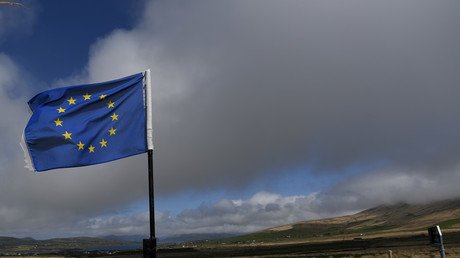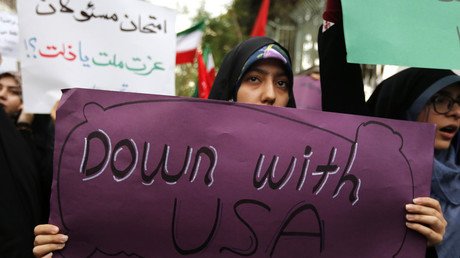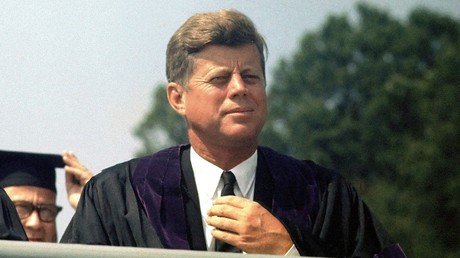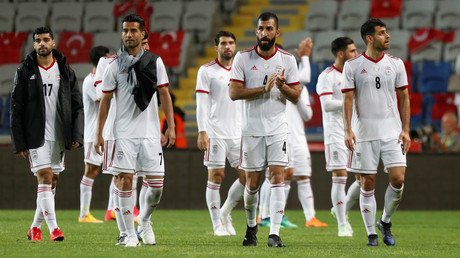Iran’s move toward uranium enrichment is message to EU to stand up to US, but it might be too late
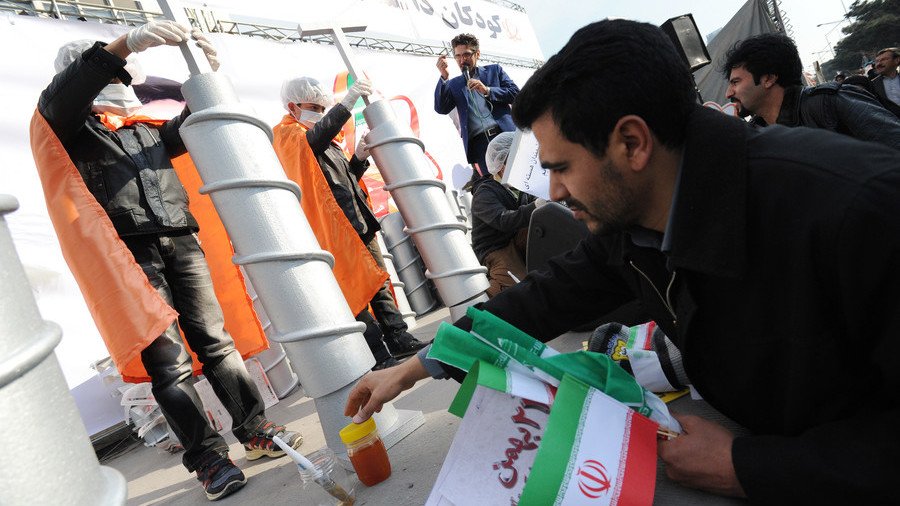
Iran’s move to get ready to enrich uranium is an attempt to send a message to Europe, encouraging it to resist US pressure to abandon the nuclear deal, experts told RT. But Germany, France and the UK might be ready to give up.
On Monday, Iran announced it’s moving to “upgrade” its uranium enrichment facility in Natanz, which was suspended under the landmark 2015 agreement.
“Our enemies will never be able to halt our nuclear progress...It is their bad dream and will not happen,” Supreme Leader Ayatollah Ali Khamenei said in a televised speech. “I have ordered Iran's atomic energy agency to be prepared to upgrade our (uranium) enrichment capacity.”
Following the statement from the top leader, the country promptly began preliminary works to build advanced uranium enrichment centrifuges. The facility that is set to house 60 devices is expected to be ready in a month, the head of Iran's Atomic Energy Organization Ali Akbar Salehi told state television on Wednesday.
While the decision to get the centrifuges ready did not violate the 2015 agreement, officially known as the Joint Comprehensive Plan of Action (JCPOA), it was actually a message to the Europeans to stand up to US pressure and stick to the deal, senior fellow with the Institute of Oriental Studies Irina Fedorova believes.
“The order from the Supreme Leader to launch the centrifuges so far corresponds with the restrictions outlined in the agreement on the Iranian nuclear program,” Fedorova told RT. “Naturally, it can be perceived as a warning to the signees of the deal and other countries, that if the deal is broken – not only by the US, but by the others –Iran can begin the uranium enrichment process. Launch of the centrifuges is not the start of full-scale uranium enrichment.”
The message came while the arguments around the 2015 nuclear deal have reached a boiling point, as Donald Trump continues to pressure his European allies into following him in abandoning the deal. The Iranian issue can become, in fact, a bargaining chip to maneuver around other outstanding issues, such as the steel and aluminum tariffs recently implemented by the US, Fedorova said.
The European signees of the deal might de-jure stay in the agreement, but if the European companies, which already started to leave Iran’s market, abandon it completely, the deal will effectively be void.
“It might happen that even if France, Germany, Great Britain and other signees won’t reject the agreement with Iran officially, their companies will pull out from Iran and it will lose the economic advantages of this deal, which basically were Iran’s goal when it was signed,” Fedorova stated.
The announced move did not violate the deal and was designed to send a message to other signees of the agreement, deputy director of Centre of strategic estimations and forecasts Igor Pankratenko said. The expert, however, doubts if it would be actually possible to influence the EU countries.
“What Ali Akbar said was aimed at the concrete capitals – London, Paris, Berlin. Moreover, he actually tried to help them with this statement, providing them with a new argument – like look, we’re destroying the agreement, everything starts from the very beginning, we return back to 2015,” Pankratenko told RT. “But the problem is, in my opinion, that in London, Paris and Berlin they’ve already decided that the deal is dead.”
The last hope to “more or less” save the agreement comes from China, Pankratenko believes, saying that if one of the world’s strongest economies maintains its obligations, Tehran might also abstain from resuming full-scale enrichment activities.
Think your friends would be interested? Share this story!
